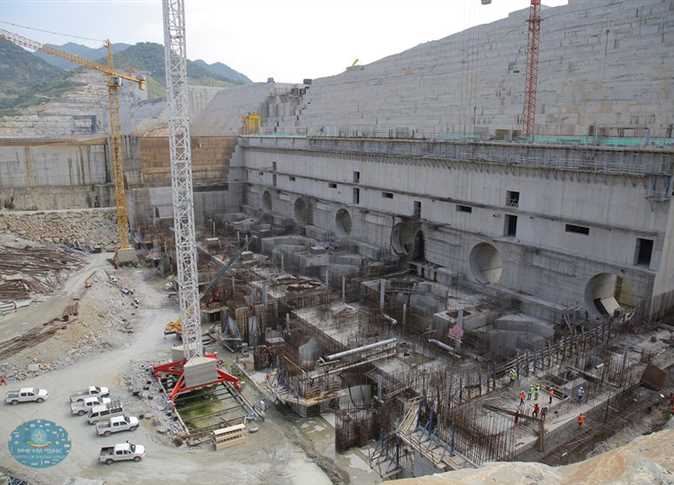
Egyptian Minister of Irrigation and Water Resources Mohamed Abdel-Aty said Tuesday that Egypt has preventive measures to protect it in the event that the Grand Ethiopian Renaissance Dam (GERD) collapses.
Abdel-Aty explained that this is done by establishing the strongest infrastructure system around the High Dam in Aswan.
His remarks were made on the sidelines of the Cairo Water Week, where Abdel-Aty said that the ministry is working on all possibilities related to GERD, including its potential collapse.
Egypt is establishing infrastructure around the Aswan High Dam that can absorb large quantities of water before it reaches Lake Nasser in a short and unspecified time, he said.
Abdel-Aty added that this infrastructure also includes the possibility that the water may not reach Lake Nasser on time, and assured his ministry is ready for all options.
The GERD remains a source of concern for Egypt, especially with what he called its ‘suspicious’ construction.
An international committee was formed to study the dam in 2011 and ended in 2013, which he said confirmed that there are major technical problems in the dam’s construction which could lead to instability.
Egypt has informed Ethiopia of its concerns and desire to follow up and cooperate on the matter, but Ethiopia insists that all of the dam’s issues have been resolved.
Egypt and Sudan say they want a legally binding agreement on operating the dam, while Ethiopia says any pact should be advisory.
Egypt and Sudan consider the dam a threat to their vital water supplies, while Ethiopia considers it essential for development and doubling its electricity production.
The downstream nations fear possible blows to water facilities, agricultural land, and overall availability of Nile water.
Negotiations over the dam between Egypt, Ethiopia, and Sudan have stalled for years, with the three parties ultimately failing to reach any agreements.
The disputed dam is the largest hydroelectric project in Africa, with a cost of more than four billion dollars.




